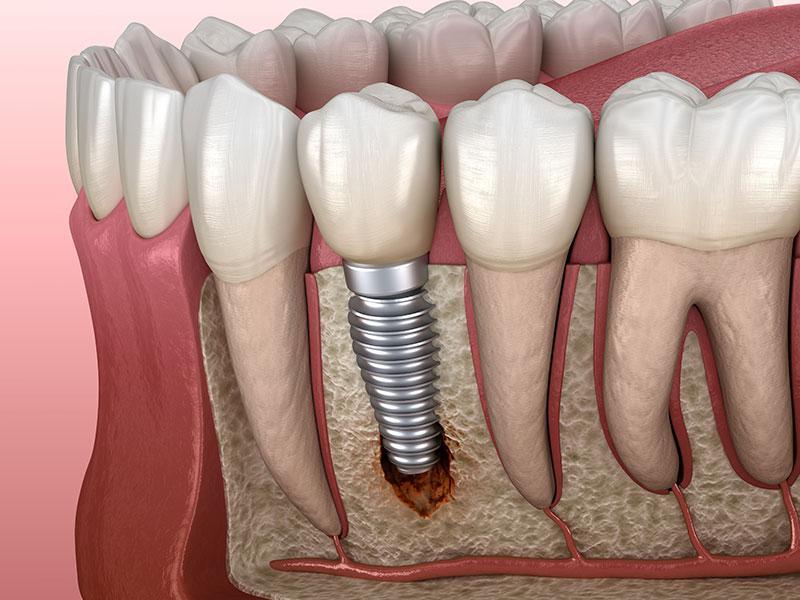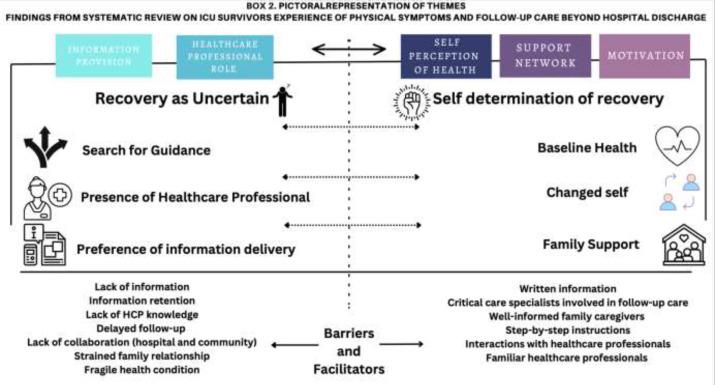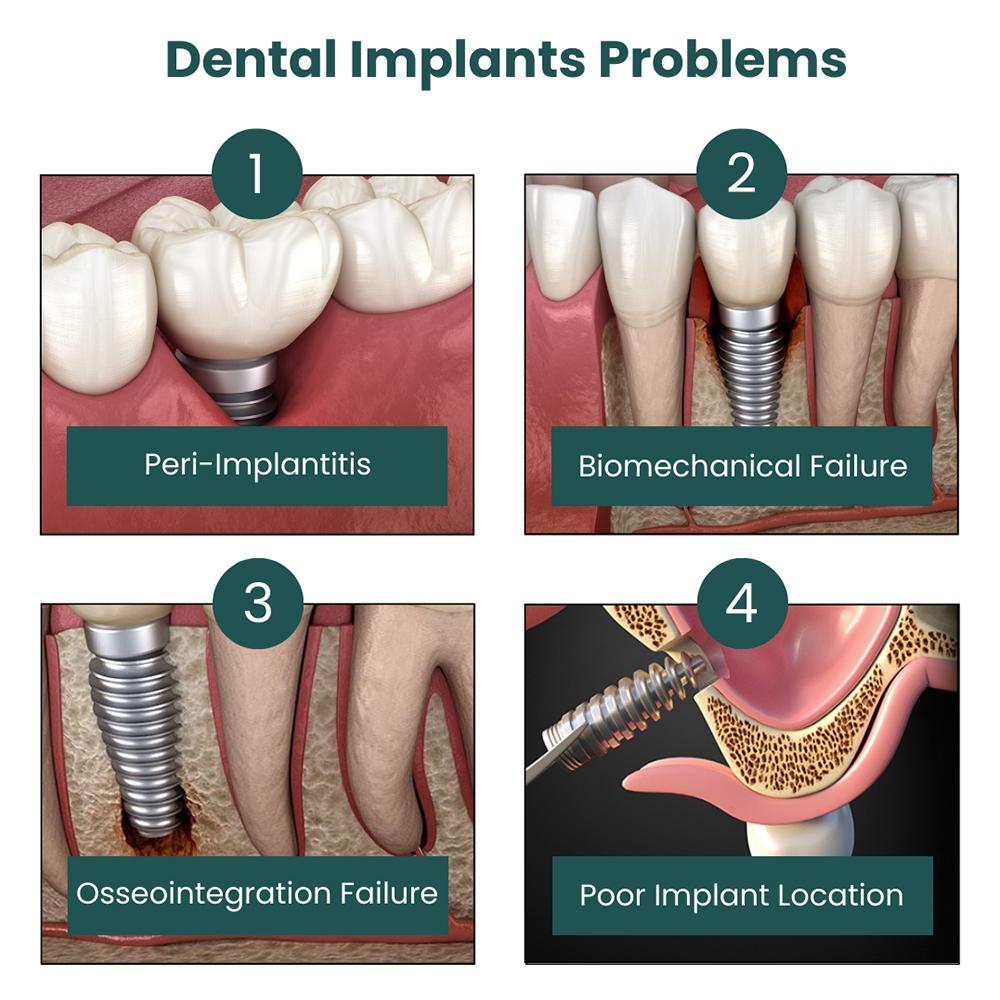Introduction
In the quest for a radiant smile and restorative oral function, dental implants have emerged as a beacon of hope for many. These remarkable innovations have transformed the way we approach tooth loss, providing a reliable and durable solution that blends seamlessly with the natural dentition. However, like any medical procedure, the path to a perfect smile isn’t always flawless. as with any notable investment in your health, it’s crucial to remain vigilant in the face of subtle warning signs that may indicate a complication with your dental implant. In this article,we will explore the key indicators that suggest your dental implant might potentially be failing,as well as practical steps to address these concerns and ensure your journey to dental wellness remains on track. Whether you’re already a proud implant recipient or considering this transformative procedure, understanding these signs can empower you to take charge of your oral health.
Recognizing the Red Flags of Dental Implant Failure
Being aware of the indicators that suggest a dental implant may be failing is crucial for timely intervention. One significant sign is persistent pain in the implant area, which could indicate complications such as infection or bone loss. Other red flags to watch for include looseness of the implant, where the fixture feels unstable or wobbly, and swelling or redness around the gum line. This can signal inflammation which may point to underlying issues that require immediate attention. Additionally, if you notice excessive bleeding when brushing or flossing near the implant site, it might very well be a sign of peri-implantitis, a serious condition that can lead to implant failure.
Other symptoms to be vigilant about include changes in bite alignment or discomfort when chewing, indicating that the implant might be shifting or not integrating properly with the jawbone. If you experience persistent bad breath that doesn’t resolve with regular oral hygiene, it might suggest an infection. Here’s a summary of the critical symptoms that warrant a consultation with your dentist:
| Red flag | Description |
|---|---|
| Pain | Continual discomfort around the implant area. |
| Looseness | Feeling of instability in the implant. |
| Swelling | Inflammation or redness in the gums. |
| Bleeding | Unusual bleeding when cleaning around the implant. |
| Alignment Changes | Discomfort or shifts in bite during chewing. |
| Bad Breath | Persistent bad odor despite oral care. |

Understanding the Importance of Proper Oral Hygiene
Maintaining excellent oral care is crucial not only for the longevity of your natural teeth but also for the success of dental implants. Proper hygiene practices can significantly influence the health and stability of your implants. Brushing and flossing twice daily, along with regular dental check-ups, create a robust defense against plaque and bacteria that can compromise your implants. Implementing a rigorous oral care routine not only protects your mouth but also enhances the overall aesthetic and functional longevity of your dental work.
It’s essential to be aware of warning signs that could indicate issues with your implants. Common symptoms may include persistent pain, unusual swelling, or noticeable changes in the gum surrounding the implant. In light of these concerns, ensuring you follow a structured care regimen can help mitigate complications. Here are a few key practices to keep your dental implants in optimal condition:
- Use a soft-bristle toothbrush to avoid harsh wear on the implant.
- employ interdental brushes or floss designed for implants for effective cleaning.
- Rinse with an antibacterial mouthwash to reduce the bacterial load in the mouth.
- Schedule regular dental visits for professional cleanings and examinations.

Evaluating the Role of Professional Follow-Up Care
After undergoing dental implant surgery, the importance of professional follow-up care cannot be overstated. Regular check-ups and evaluations provide an prospect for your dentist to monitor the healing process and ensure that the implant is integrating properly with your jawbone. Symptoms that may indicate an issue can include persistent pain, swelling, or mobility of the implant. By attending these follow-up appointments, you can catch potential problems early, possibly saving you from more extensive procedures down the line.
Moreover,the role of professional guidance extends beyond just check-ups. Dental professionals can provide tailored advice on proper oral hygiene practices that are crucial for the longevity of your implant. Regular cleanings and personalized care integrate two fundamental layers of support: professional attention and patient responsibility. Consider the following aspects to keep in mind during your follow-up appointments:
- Assessment of Gum Health: ensures that no infection is developing around the implant.
- Implant Stability Tests: Verifies that the implant remains securely anchored.
- Adjustment Recommendations: Addresses any discomfort that may arise during the healing process.

Exploring Treatment Options for a Failing Implant
When faced with a failing dental implant, exploring the right treatment options is crucial to restore both function and aesthetics. A thorough evaluation by your dentist or oral surgeon will often be the first step. Depending on the severity of the implant’s failure, several paths may be taken, such as:
- Implant Replacement: If the original implant cannot be salvaged, removing it and placing a new one in a different location can be a viable option.
- Bone Grafting: In cases of bone loss, a graft might potentially be necessary to rebuild the jawbone before re-implantation.
- Peri-implant Disease Treatment: For infections or inflammation, treatments can include antibiotics or professional cleaning procedures.
The prognosis of your dental implant relies heavily on the underlying causes of its failure. Addressing these factors can significantly improve outcomes. To illustrate some potential risks and their respective treatments, consider the following table:
| Risk Factor | Treatment Option |
|---|---|
| Infection | Antibiotics and cleaning |
| Poor Bone Density | Bone grafting and stabilization |
| Improper Oral Hygiene | Education and enhanced dental care |
Ultimately, your dental professional will tailor their approach based on your specific circumstances. Engaging in open discussions about your concerns and options can pave the way for the best possible outcome for your dental health.

Maintaining long-Term Success with Regular Dental Care
Maintaining a healthy oral ecosystem is vital for the longevity of your dental implants. Regular dental care practices can prevent complications that lead to implant failure and promote lasting success. Routine check-ups with your dentist are crucial, as they can identify signs of infection or bone loss early. Additionally, practicing good oral hygiene at home is essential; this includes brushing twice daily and flossing regularly. Don’t forget the importance of using antibacterial mouthwash, which can definitely help in reducing plaque build-up around the implant site.
Moreover, lifestyle choices significantly impact the success of your dental implants. Avoiding harmful habits, such as smoking or excessive alcohol consumption, can greatly enhance your implant’s durability.Routinely evaluating your diet is also beneficial—incorporating calcium and vitamin D can promote healthy bone levels, providing better support for your implants. Keeping track of your oral health can communicate to you when something is amiss. Below is a simple overview of practices for accomplished long-term maintenance:
| Practice | Importance |
|---|---|
| Regular Dental Check-Ups | Early detection of issues |
| Daily Oral Hygiene | Prevention of plaque and infection |
| Healthy Lifestyle Choices | Supports bone and gum health |
Wrapping Up
staying vigilant about your dental implants is essential for maintaining both your oral health and overall well-being. Recognizing the signs of potential failure—such as discomfort, unusual swelling, or changes in bite alignment—can empower you to take action before more serious complications arise.Remember, it’s always best to consult with your dental professional if you have any concerns. They can provide guidance tailored to your individual situation, ensuring that your smile remains bright and healthy. with prompt attention and appropriate care, you can navigate the challenges that may arise, keeping your confidence and quality of life intact. After all, a beautiful smile is worth the effort!
